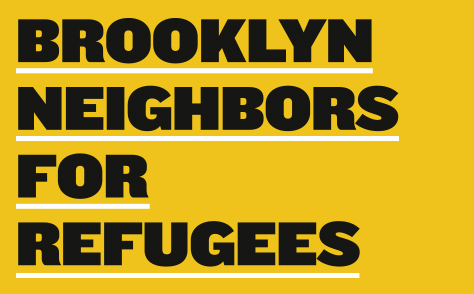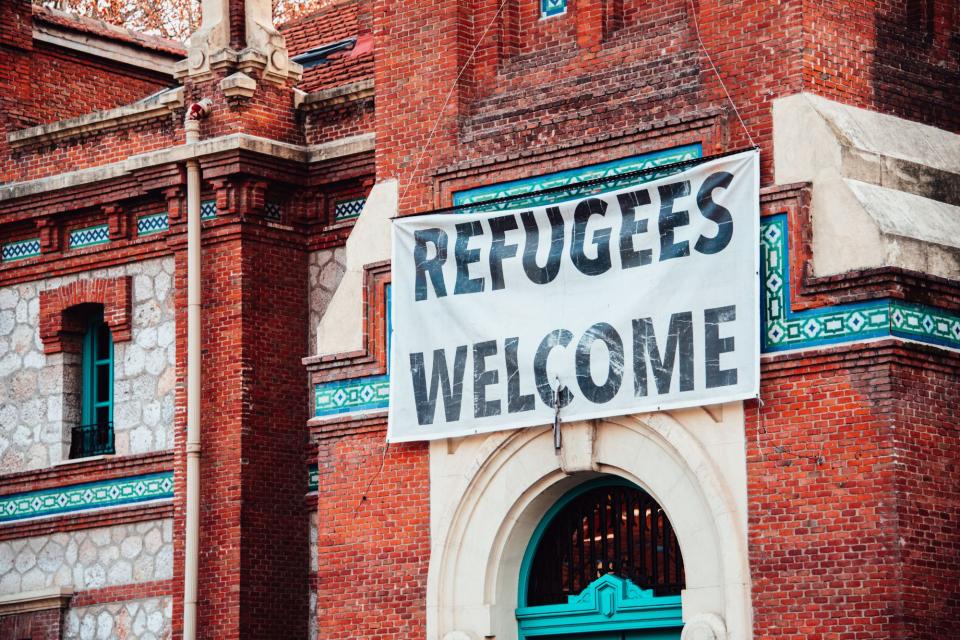This story was also published by Episcopal News Service.
On August 31, 2021, the United States withdrew from Afghanistan nearly 20 years after its initial invasion. Since then, 76,000 people have been evacuated to the U.S., leaving their homeland that, over a year later, “faces a collapsed economy, humanitarian crisis, and a Taliban regime essentially unchanged from that of 1996-2001.”
A conflux of factors: a swell of new refugees, a hasty withdrawal of troops, understaffed and under-resourced resettlement agencies, and the Taliban’s abrupt resurgence to power, created a tense predicament for Afghan refugees and those tasked with settling them in the United States.
As the impending refugee crisis dominated international headlines, the Rev. Steven D. Paulikas, rector of All Saints’ Park Slope, and the Rev. Mark Genszler, rector at Christ Church Cobble Hill, noticed an uptick in their parishioners' and neighbors’ desire to practically support Afghan refugees. After a conversation with Episcopal Migration Ministries, the parishes decided to partner with HIAS, a refugee resettlement agency rooted in the sacred tradition of “welcoming the stranger,” forming what is now Brooklyn Neighbors for Refugees (BKNR).

BKNR describes itself as, “A group of community members coming together to raise funds and support newly arrived refugees who are resettling in New York City. We believe our community sponsorship program not only helps the families we directly work with, but makes our city a better home for all of us in the process.”
From the start of the project in November 2021, Fr. Paulikas and Fr. Genszler have witnessed what they call a “tidal wave of support.” And a tidal wave is precisely what they needed to organize the welcome and orientation of the Afghan refugee family put in their care via HIAS.
HIAS has been welcoming and supporting refugees for over 100 years. The experience they bring to this partnership has been fundamental in transforming the desire to support refugees into a tangible initiative that prioritizes the dignity and safety of the family BKNR is supporting.
HIAS requires that all programs wishing to sponsor a refugee family have at least 50 volunteers divided into the following six committees: housing, health, community connection, translation, education, and employment. All programs also must be able to invest anywhere from 15 to 40 thousand dollars over 12 months to care for the family while they work to become self-sufficient.
In practice, BKNR’s 64 volunteers invested thousands of volunteer hours and a plethora of professional skills to support their Afghan family from January 2022 until today. Volunteer translators WhatsApp messaged the family in Pashto, sometimes in the middle of the night when emergencies arose. The wife was pregnant upon her arrival, and a volunteer accompanied her to her prenatal appointments, after finding a Pashto-speaking OB-GYN. One of the most difficult tasks was finding a suitable apartment for the growing family – a volunteer even serves as guarantor on the family's lease. A community member with a financial background developed a budget for the family based on the cost of their rent, groceries, transportation, and the husband’s job (which also had to be secured by BKNR).
HIAS requires that the family receive gift cards to grocery stores so they can properly report spending on food. However, one of the only grocery stores in the city that met the family’s dietary needs was in Queens. Brooke, a parishioner at All Saints’, was the primary coordinator for the family and she ended up spending the better part of an afternoon on the bus traveling back and forth to Queens to secure these gift cards for the family. These tasks seem more straightforward but require logistical planning, in addition to the unwavering commitment and resilience of trusted volunteers.
Fortunately, the resilience and resourcefulness needed for the scope of this initiative was abundant between the parishioners and community members connected with All Saints’ and Christ Church. Fr. Paulikas, in addition to his ministry as rector of All Saints, also serves on the board of Episcopal Relief & Development. He is also one generation removed from war and displacement in German-, later Soviet-occupied, Lithuania.
After escaping the Soviets and surviving in a “displaced persons camp,” Fr. Paulikas’ family was included on a list of names of refugees who would be personally sponsored by a Roman Catholic priest in Detroit. “In doing so, the priest and his parish took full financial and legal responsibility for my family, pledging that they would find them a place to live, jobs and help integrate them into American society.” His father, grandparents, and three aunts were settled in a two-bedroom apartment above a bar on the west side of Detroit, due to an act that he says, “fundamentally transformed the life of my family, and thus, my own life, forever.”
It is not only the lives of refugees themselves that are transformed by this radical accompaniment ministry. Both Fr. Paulikas and Fr. Genszler agree that people’s involvement in this ministry has dramatically impacted spiritual life in their parishes. Some volunteers, “only call themselves Episcopalians due to their connectivity with this project.” People who had not been deeply integrated into parish life – and even people who had never stepped in the church before – seemed to appreciate that the “church was doing what it was supposed to be doing.”
Due to security concerns, not all volunteers or parishioners can meet the family they are working to support. But one evening, after additional background checks, the family and BKNR volunteers were able to “break bread” – in this case, pizza – together.
“There was something sacramental about that night,” recalls Fr. Paulikas. “In the middle of Brooklyn, crowded around a table with sizzling NY slices, we got to hear directly (through translation) about the trauma this family had experienced – the trauma they carried while we did what we could to forge an easier path for them in this country.”
“So often, it felt like we were building a plane while flying it, but we knew that we had no other choice,” added Fr. Genszler.
Due to a grant from Episcopal Ministries of Long Island, Brooklyn Neighbors for Refugees is preparing to welcome its second refugee family via HIAS. Fr. Paulikas remarked that, “the support from Episcopal Ministries means that we can welcome another family. With this boost from the diocese and our network of volunteers, we are confident that we can meet their needs. And that’s a great feeling.”
